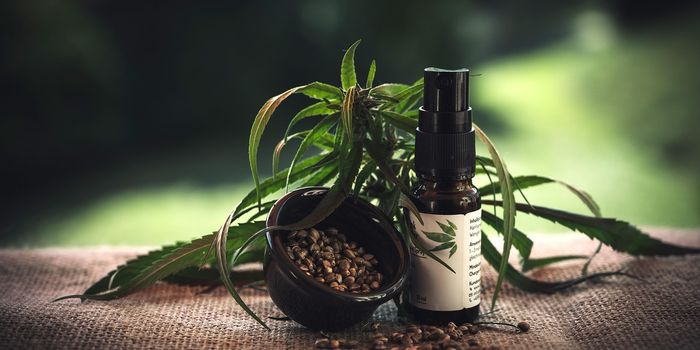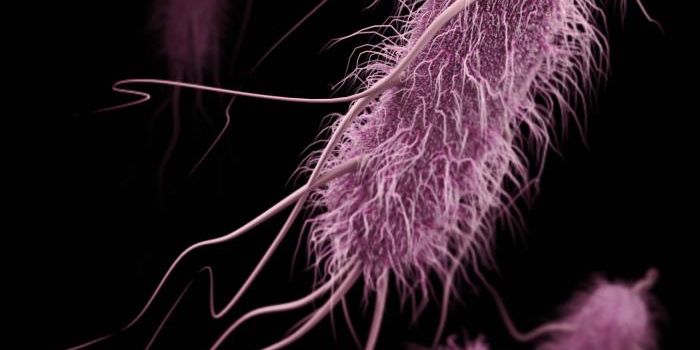Bacteria that are resistant to drugs are an ever-increasing public health threat, with the Centers for Disease Control and Prevention (CDC) estimating that antibiotic-resistant bacteria cause over 2 million illnesses; 23,000 of those infections end in death. New work performed at the University of Texas Southwestern Medical Center shows that a synthetic compound can impact a bacterium’s ability to expel antibiotics. This finding could be a promising new way to combat drug-resistant bacteria.
Publishing in PLOS Biology, the report shows that this new compound makes bacteria sensitive to drugs they had been resistant to. Bacteria utilize efflux pumps in order to transport materials and those pumps have a big influence on drug resistance. The compound specifically blocks pumps that eliminate antibiotics. To see an animation of efflux pumps, check out the video above.
These findings "potentially have huge implications for clinical infectious diseases," commented Dr. Trish Perl, the Chief of the Division of Infectious Diseases, a Professor of Internal Medicine, and holder of the Jay P. Sanford Professorship in Infectious Diseases at UT Southwestern. "In an era when antibiotic choices are increasingly limited because of resistance, and few new agents are being developed, this becomes a novel and exciting tool that needs to be explored."
The synthetic compound is part of a class of molecules called PPMOs or peptide-conjugated phosphorodiamidate morpholino oligomers that are also called anti-sense molecules because they can bind to complementary sequences of mRNA, which means they can block cellular machinery from making proteins from them. As such, the researchers decided to try to create a PPMO that would target the pump. The compound doesn’t kill bacteria, but by preventing the pump from working, allows the antibiotic to work. For a visual explanation of how antisense drugs work, watch the short video below.
"This is just a different strategy," explained Dr. David Greenberg, senior author of the work and an Associate Professor of Internal Medicine and Microbiology at UT Southwestern. "There is a lot of interest in trying to develop new antibiotics, or antibiotics that act in new ways. The other way of thinking about this challenge is to try to make a resistant organism sensitive."
The PPMO created by the team stops the creation of a protein called AcrA, part of an efflux pump complex, AcrAB-TolC, in Escherichia coli (E. coli). The lab of co-senior author Dr. Erdal Toprak previously observed that the AcrAB-TolC complex affects sensitivity to drugs. When the complex was mutated, drug sensitivity increased.
The molecule made by the investigators, AcrA-PPMO, increased antibiotic efficacy from two to 40-fold in models. Toprak added that some antibiotics thought to be ineffective against E coli were useful when combined with the AcrA-PPMO. Additionally, AcrA-PPMO was demonstrated to work on the pathogens Klebsiella pneumoniae and Salmonella enterica, which share the same efflux pump.
Next, the researchers want to study the PPMO is animal models and against other serious strains of antibiotic-resistant bacteria.
Sources:
Phys.org via
UT Southwestern Medical Center,
CDC,
PLOS Biology


![[Guide] 7 Strategies to Boost Laboratory Collaboration](https://d3bkbkx82g74b8.cloudfront.net/eyJidWNrZXQiOiJsYWJyb290cy1pbWFnZXMiLCJrZXkiOiJjb250ZW50X2FydGljbGVfcHJvZmlsZV9pbWFnZV83YzBjZWIwM2Y5YzI4MmFlYzBhZDZhMTcyNTQ1ZGU3YmE4Y2MzMDYyXzUxNDkuanBnIiwiZWRpdHMiOnsidG9Gb3JtYXQiOiJqcGciLCJyZXNpemUiOnsid2lkdGgiOjcwMCwiaGVpZ2h0IjozNTAsImZpdCI6ImNvdmVyIiwicG9zaXRpb24iOiJjZW50ZXIiLCJiYWNrZ3JvdW5kIjoiI2ZmZiJ9LCJmbGF0dGVuIjp7ImJhY2tncm91bmQiOiIjZmZmIn19fQ==)






